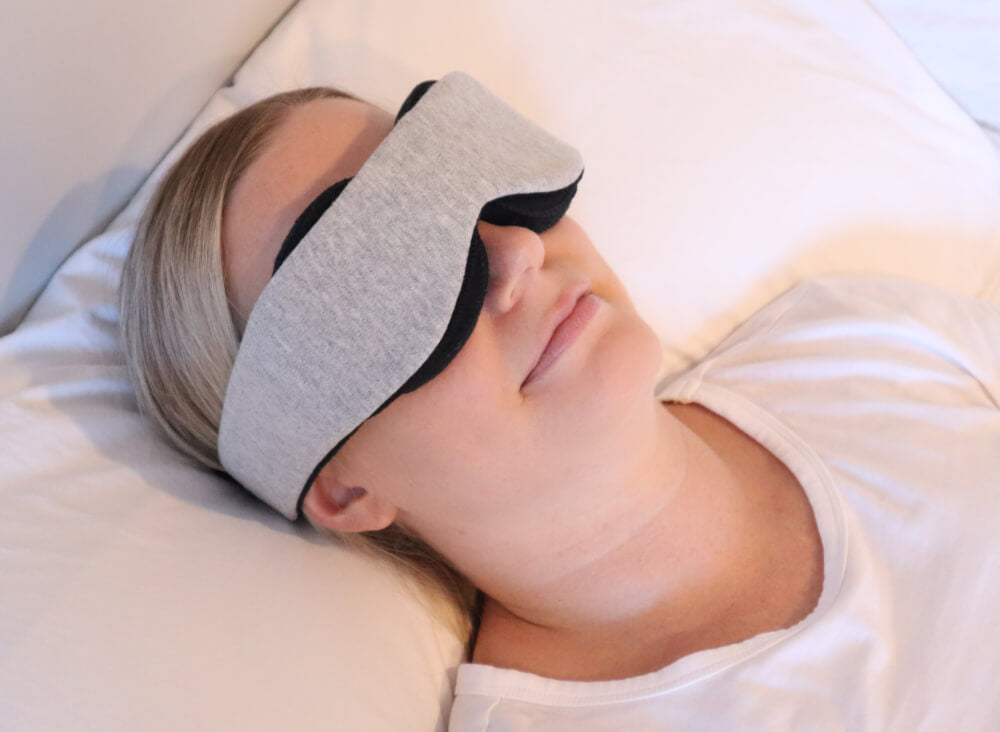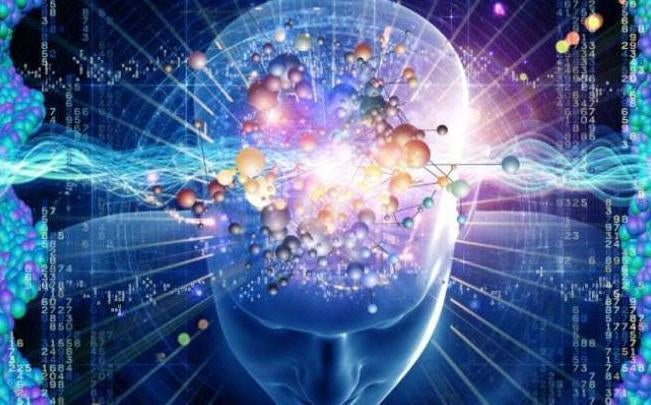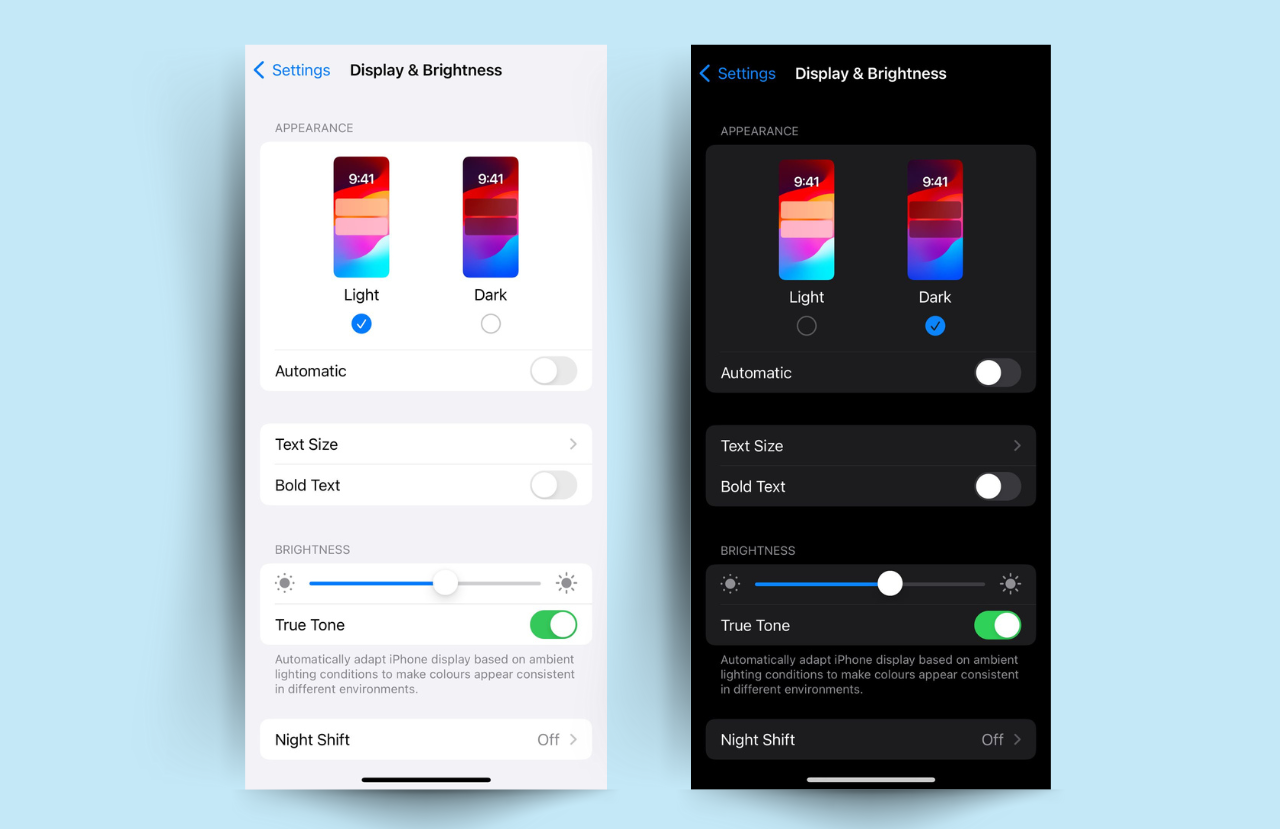Humans spend about one-third of their life sleeping, indicating a crucial role it plays in our life. Sleep is necessary for vital human cognitive functions such as sustained attention, vigilance, emotional processing and working memory. Research has shown that poor sleep can lead to anxiety, depression and sleep disorders (1). Thus, we need to understand and improve our sleep cycle. However, sleep has different stages: NREM Alpha, NREM Theta, NREM Delta and REM. But, have you ever wondered what sleep stage is related to dreaming and forming memory? If you have, you are in the right place. This article will focus on explaining what REM sleep is, which is associated with dreaming. It will also focus on ways we can improve our REM sleep so that we can improve the overall quality of our sleep by using our 20 suggested strategies.
The Different Stages of Sleep
According to the NIH (2), there are two main stages of sleep: rapid eye movement (REM) sleep and non-REM sleep. Non-REM sleep has further three different stages. Every stage is linked to a specific neuronal activity and brain wave structure. During the night, humans cycle through all stages of non-REM and REM sleep several times, with longer REM sleep periods towards morning. These are the following stages:

Stage 1
This is the first stage of non-REM sleep where your brain travel from wakefulness to sleep. This usually lasts for several minutes as light sleep, with slow heartbeat, breathing and eye movements. Eventually your muscles relax and occasional twitches. Brain waves also get slower, as your brain starts to relax from your daytime wakefulness.
Stage 2
This is also a non-REM sleep, which lasts for about twenty minutes. In this stage your muscles relax further, but you are still in light sleep. Our brain begins to produce very short periods of rapid, rhythmic brain wave activity known as ‘sleep spindles’. Body temperature begins dropping and heart rate starts slowing down.
Stage 3
In this stage deep and slow brain waves known as the Delta Waves begin to emerge at this point. It's a transitional period between light sleep and very deep sleep.
Stage 4
This is commonly known as 'Deep Sleep' or ‘Delta Sleep’, because of the delta waves that occur during this time. Stage Four is a deep sleep that lasts for about 30 minutes. Sleepwalking and bed-wetting typically happen at the end of Stage Four sleep. To learn all about Deep Sleep and how you can increase it read our article "What Is Deep Sleep?"
Stage 5
This is REM sleep, where rapid eye movements occur while you’re sleeping. Dreaming mostly occurs in this stage, with increased respiration rate and increased brain activity. This period lasts for about 90 minutes.
What is REM Sleep?
In 1953, Aserinsky and Kleitman indicated that dreaming was related to eye movements during sleep that they called REM sleep (2). This discovery of dreaming was then found in most mammals, suggesting a new phenomenon that animals regularly dream during their sleep. During our sleep cycle, the brain travels through five different stages of sleep, and one of them is rapid-eye-movement (REM) sleep. People enter REM sleep in the first 90 minutes of their sleep cycle, and the eyes are continually moving in various directions. This phase of sleep accounts for 25 percent of an adult’s life cycle and over 50 percent of an infant’s (2).

REM sleep begins in an area at the bottom of the brain, called pons. Signals from pons are sent to the thalamus, which sends them to the cerebral cortex. This is the outer layer of the brain that is responsible for thinking, learning and consolidating information. Researchers have also found that during REM sleep, our body can experience a state of temporary paralysis, which inhibits our muscle activity (3). The pons is responsible for causing this temporary paralysis as they shut off neurons in the spinal cord. It is suggested that this may be a protective mechanism to prevent injury that can be caused by acting out during dreaming.
Researchers have found that our brain is active during REM sleep just like it is when we are awake. During REM sleep, our brain and body show several changes, such as:
- Hurried movement of the eyes
- Constant and uneven breathing
- Augmented heart rate
- Changes in body temperature
- Heightened blood pressure
- Similar brain activity as being awake
- Trembling of the face and limbs
Importance of REM Sleep?
REM sleep is essential for vital functions such as memory, learning, and mood. Some relevant research has also shown that it is responsible for brain development in infants.
Firstly, it is proven that REM sleep is significantly vital for strengthening memories. For example, a research study published in the journal of Current Biology (4) showed that poor rapid eye movement sleep negatively impacted the brain area called the amygdala. This brain area is responsible for the long-term consolidation of memories, which is essential for learning. The amygdala is also responsible for eliciting strong emotions such as anxiety, fear and sorrow. This study showed that participants who were woken up from a disruptive REM sleep were negatively impacted emotional events, whereas those who had REM sleep did not elicit negative emotions. Therefore, this shows that REM sleep is considered crucial for memory and emotions.
Secondly, REM sleep is also responsible for our working memory, which is part of short-term memory responsible for immediate conscious perceptual and linguistic processing. A study published in the Journal of Sleep Research (5) found that one night of sleep deprivation can impair working memory, which in returns worsens the reasoning and planning ability.
Lastly, REM sleep is also essential for learning auditory information. A group of researchers studied humans during sleep. The researchers then introduced several unusual sound sequences during wakefulness, rapid eye movement (REM) sleep, and non-REM sleep. The next day, these participants were tested on identifying these sounds, and the results showed that participants who heard these sounds during REM sleep showed more recall. Whereas, participants who listened to these sounds during non-REM sleep had less or no recall of the sounds. This shows the crucial part of REM sleep plays in learning and remembering stimuli around us.
Are you getting enough REM Sleep?
Scientists and doctors suggest that it is recommended to sleep for 7 to 9 hours of sleep every night. Adults usually spend 13 to 23 percent of their sleep in REM or deep sleep. So if you are sleeping for 8 hours a night, you spend about 62 to 110 minutes in a deep sleep (6). However, as you get older, you get less deep sleep.
The best way to tell if you’re getting enough REM sleep is to notice if you are dreaming. If you wake up from a dream, it’s probably a sign that you were in REM sleep. It would be best if you also looked for other things, such as your emotions and memory of things. But, if you feel like you are becoming forgetful, or feeling moody most of the day, then that’s probably a sign that you’re not getting enough REM sleep. You can try to monitor your sleep and see if that’s causing any problems. Although there’s no official consensus on how much REM sleep you should get, dreaming is most common during this stage which can help you process emotions and solidify specific memories. Due to this, it is essential to get enough REM sleep, which can be different for every adult. So, it is best to aim for at least 7 hours of sleep each night, undisrupted so you can enter REM cycle.
On the other hand, infants and children need significantly more sleep than adults. Infants spend about 16 of every 24 hours sleeping. In this sleep cycle, about 50 percent of their sleep is spent in REM sleep. However, some children may have sleeping problems such as trouble with falling asleep, staying asleep, or sleeping well, or oversleeping. This will make them irritable, have learning and memory problems, or maybe more likely to become ill.
If you or your child is having sleeping difficulty and you don’t know how to monitor it, consider buying a wearable device such as the Orua Ring. This measures your movement, heart rate and sleep habits may help you to identify how much deep sleep you get each night.
How to Improve REM Sleep?
If you believe you or your child is not getting enough REM sleep, do not worry. This section will focus on explaining ways in which you can improve your REM sleep to recover your sleep quality.
1. Exercise
Research has suggested that it is important for us to do some type of aerobic endurance training, such as hiking, running, walking or cardio machines. Such light to moderate exercises are thought to improve sleep quality and REM sleep. Therefore, you should try to engage in at least 30 minutes exercise daily such as walking to improve your REM sleep. However, be careful not to over exert yourself as acute exercise routine may reduce REM sleep (7).
2. Prebiotics
Prebiotics are a type of fiber that the human body cannot digest. There is recent evidence (8) indicating that diet rich in prebiotics began in early life alleviates the stress-induced disruption of REM sleep. Food that include prebiotics are chicory root, onions, oatmeal, wheat bran, asparagus, dandelion greens, bananas and apples. Therefore, if you are struggling with your REM sleep and dreaming, try consuming these foods on a regular basis.
3. Have a Regular Sleep Routine
As mentioned above, it is important for adults to sleep for at least 7 hours a night. You should allow yourself to go to bed every day at the same time and give yourself more than 7 hours to sleep. In the long-run, having a fixed sleep routine will condition your brain to sleep at the same time. Having more time to sleep will also increase your chances of having enough REM sleep, which will allow you to dream and improve your memory.
Implementing strategies to improving your sleep hygiene will always pay big dividends in improving your REM sleep. To read all about sleep hygiene and how you can improve it read our article "What Is Sleep Hygiene And 9 Simple Tips To Improve It"
4. Sleep in a Dark Room
Darkness is essential to sleep because it sends a critical signal to the body that it is time to rest. Light exposure at the wrong times alters the body's internal "sleep clock” which interferes with both the quantity and quality of sleep. Melatonin, a hormone produced in the brain's pineal gland, is often known as the "sleep hormone" or the "darkness hormone." Melatonin influences sleep by sending a signal to the brain that it is time for rest. This signal helps initiate the body's physiological preparations for sleep—muscles begin to relax, feelings of drowsiness increase, body temperature drops (9). Hence, sleeping in a dark room allows you to have more REM sleep, which in return improves your memory and learning.
5. Use a Blackout Sleep Mask
As mentioned above, it is important to sleep in the dark. However, sometimes it may be difficult if you have a room that cannot be dark all times, or if you have long days and short nights. Hence, if you are struggling with sleeping in the dark, try using the Deep Sleep Delta Sleep Mask, which completely eliminates 100% of light entering your eyes. This creates "pure darkness" for your brain, which then increases your Deep and REM sleep.

6. Counter Noise Pollution
According to the National Sleep Foundation, elevated noise levels can cause restlessness during sleep. This includes twitching, moving, and shifting between stages of sleep. All that tossing and turning can lead to a subjective feeling of lower sleep satisfaction, as well as more measurable feelings of sleepiness and mood changes the following day. Therefore, it is recommended to wear ear plugs, especially if you are a light sleeper.

You can try using our Sleep+ Sound Blocking Ear Plugs which cancels all disrupting noises, such as snoring partners, noisy neighbours and loud cities. Using ear plugs will allows you to have good quality of REM sleep.
7. Block Blue Light At Night


We have an internal body clock, called the circadian rhythm. This needs to be regulated in order to achieve ideal level of sleep, which is done when we pass through all stages of the sleep cycle and have REM sleep. When we use smartphones or laptops before going to bed, the artificial light confuses our brain into thinking that its day time. This delays the secretion of the sleep hormone melatonin, which in return disrupts our sleep cycle.
Studies have shown that wearing blue light blocking glasses when using a computer, tablet, kindle, gaming device and smartphone in the evening can improve sleep (10). You can use Blue Light Glasses if you are using digital devices before bedtime. This will not disrupt your body sleep clock and you will have a good quality of REM sleep.
If your work involves you working late at night, especially if you are a student, you can consider investing in Amber Book Light or the NoBlue Sleep Lamp which is 100 percent free of any artificial blue light.
8. Avoid Alcohol
Alcohol can easily ruin your sleep quality, as research has shown that drinking alcohol before bedtime significantly deteriorate the REM sleep quality (11). The findings also show that the alcohol significantly effects the second half of your sleep, which is when the REM sleep occurs. This is can be explained by the phenomenon that when you have a night out drinking, you still wake up feeling sick. No matter how hard you try, your sleep quality will be poor the following night. Hence, it is important to drink a moderate amount of alcohol during the afternoon. This is to make sure it is out of your system by night time.
9. Rule Out Medical Conditions
Sometimes REM sleep problems can be due to underlying medical conditions, such as sleep apnea, Lyme disease, restless leg syndrome or pain disorders (12). It is important that you consult a doctor in order to get the correct treatment for these.
10. Zinc
Certain specific nutrients and micronutrients are thought to be related with sleep disorders (13). As a limited micronutrient, zinc (Zn) retains antioxidant and anti-inflammatory characteristics, which are vital for material and emotional well-being. Zinc is responsible for producing serotonin; this indirectly supports your REM sleep by producing more melatonin and decreasing the chances of bad dreams. You can improve your REM sleep by taking zinc supplements, as research have shown that people who took Zinc showed significant improvements in their REM sleep quality (14).
11. Choline
This is a nutrient that's found in eggs, liver, and soy lecithin. Animal foods in general and greens are wise choline sources as well. Research is shown that Choline is essential for the functioning of the circadian rhythm (15). That choline is also central to the "Acetylcholine" neurotransmitter, which plays a role in goal-directed behavior as well as the initiation of REM sleep.
Individuals typically experience more vivid dreams with increased choline levels as well as more frequent ones. The greater dream prevalence is a clear signal of REM sleep. Therefore, you can improve your REM sleep quality by taking Choline supplements or eating Choline rich foods such as eggs.
12. Vitamin B6 (Pyridoxine)
Vitamin B6, or pyridoxine, is a commonly used supplement which people take to improve sleep quality. The compound is thought to increase the serotonin levels in the brain, and therefore melatonin, which subsequently affects sleep quality by producing very lucid dreams (16).
However, evidence is mixed as research studies do not show a direct link yet, but there is no harm in taking some supplements.
13. Theanine and GABA
Theanine is a compound found in tea leaves and GABA is a brain neurotransmitter. You can get these two compounds from your local stores. Recent research studies have shown that a combination of Theanine and GABA significantly improves sleep duration and REM sleep (17).
14. Vitamin D
It's best to get vitamin D through sunlight exposure. When the sun is higher up the sky, with an angle above 45 degrees, its rays create vitamin D in your skin. Research has shown that without Vitamin D, your sleep cycles is significantly shorter which makes it difficult to enter REM sleep (18). Hence, you can improve your REM sleep by making sure to take enough vitamin D.
15. Lucid Dreaming Supplements
These are supplements which are thought to improve your REM sleep. However, this is still a new area in research and direct effects on REM sleep are yet to be found. Research has shown that supplements like Galantamine and Huperzine improve memory in conditions such as Alzheimer’s disease (19). You should consult your doctor if you think your disrupted REM sleep is causing you memory problems. They may prescribe you one of these supplements to improve your REM sleep quality.16. Manage medication Suppressing the REM Sleep Stage
If you are taking certain prescription medications, you sleep quality will be disrupted. These medications include:
- Pain killers: medication which involves Panadol can lower the amount of REM sleep and lead to poor sleep quality (20).
- Nasal decongestants and weight loss drugs: These drugs influence the dopamine levels in your brain and makes you feel more awake. This significant change in neurotransmitter can impact your REM sleep quality.
It is not suggested that you stop taking these medications, however, if you think they are causing you significant sleep disturbances. Your doctor may be able switch your medication or give you some alternative options.
17. Avoid caffeine
Individuals usually drink coffee and tea to stay alert. That’s exactly what caffeine does to your brain, it makes it high in alert. Research has shown that caffeine can dramatically shift your sleep cycle. For example, it can move your REM sleep to an earlier stage, and deep sleep to the later stages (21).
Therefore, it is suggested to avoid caffeine right before bedtime. You can have it during the other times of the day however, having too much is generally bad for your sleep in the long-run.
18. Track What You Are Doing
Sometimes your personal circumstances, such as stimuli in the environment, working hours, stress or mood can have a direct impact on the quality of your REM sleep. You can use the Oura Ring app to track your life circumstances to keep a check on sleep quality that you are getting.

You can also manage your life situations, such as reduce your working hours if you are working too much. Try to have a routine where you stop working at least 3 hours before bed, this will improve your sleep quality and prepare your brain to sleep.
19. Manage the air pollution in your room
The quality of the air in your room has a direct impact on your sleep quality. Research has shown that poor air quality, with pollution particles in the air, can increase risk of breathing problems and also sleep apnea (22). This indirectly impacts long term sleep quality, and lead to deprived REM sleep.
Hence, it is important to make sure the air around your room is not polluted. You can have an air cleansing devices in your room which will make sure your air is fresh.
20. Meditation
This has been proven to help people fall asleep twice as quickly, enhance rapid eye movement (REM) sleep states, and preserve deep sleep. In fact, it apparently works so well that by the end of one insomnia and meditation trial, 60 percent of participants no longer qualified as insomniacs (23).

Meditation can be very relaxing and a fun activity to do at the end of your day to improve your REM sleep. It relaxes your muscle tension, mind and body. There are different type of meditations that you can try, such as:
- Mindfulness based meditation
- Spiritual meditation
- Movement meditation
- Focused meditation
References
- Harvard Health Publishing (2020). Retrieved from: https://www.health.harvard.edu/newsletter_article/sleep-and-mental-health
- https://www.ninds.nih.gov/Disorders/patient-caregiver-education/understanding-sleep
- Aserinsky, E., & Kleitman, N. (1953). Regularly occurring periods of eye motility, and concomitant phenomena, during sleep. Science, 118, 273–274
- Leonard, J. (2017). What Is REM Sleep? Medical News Today. Retrieved from: https://www.medicalnewstoday.com/articles/247927#non-rem-sleep
- Wassing, R., Lakbila-Kamal, O., Ramautar, J., Stoffers, D., et al. (2019). Restless REM Sleep Impedes Overnight Amygdala Adaptation. Current Biology, 29(14), 2351-2358. DOI:https://doi.org/10.1016/j.cub.2019.06.034
- Rangtell, F., Karamchedu, S., Andersson, P., Liethof, L., et al. (2018). A single night of sleep loss impairs objective but not subjective working memory performance in a sex‐dependent manner. Journal of Sleep Research, 28(1).
- Institute of Medicine (US) Committee on Sleep Medicine and Research; Colten HR, Altevogt BM, editors. Sleep Disorders and Sleep Deprivation: An Unmet Public Health Problem. Washington (DC): National Academies Press (US); 2006. 2, Sleep Physiology. Available from: https://www.ncbi.nlm.nih.gov/books/NBK19956/
- O'Connor, P.J., Youngstedt, S.D. (1995). Influence of exercise on human sleep. Exercise and Sport Sciences Reviews, 23, 105-134.
- Thompson Robert S., Roller Rachel, Mika Agnieszka, Greenwood Benjamin N., Knight Rob, Chichlowski Maciej, Berg Brian M., Fleshner Monika. (2017). Dietary Prebiotics and Bioactive Milk Fractions Improve NREM Sleep, Enhance REM Sleep Rebound and Attenuate the Stress-Induced Decrease in Diurnal Temperature and Gut Microbial Alpha Diversity. Frontiers in Behavioral Neuroscience, 10, 240.
- https://sleep.mysplus.com/library/category2/article1.html
- Burkhart et al. (2009). Amber Lenses to Block Blue Light and Improve Sleep: a Randomized Trial. Available at: https://www.ncbi.nlm.nih.gov/pubmed/20030543
- Parish J. M. (2009). Sleep-related problems in common medical conditions. Chest, 135(2), 563–572. https://doi.org/10.1378/chest.08-0934
- Grandner, M. A., Jackson, N., Gerstner, J. R., Knutson, K. L. (2014). Sleep symptoms associated with intake of specific dietary nutrients. Journal of Sleep Research, 23(1), 22-34. doi:10.1111/jsr.12084
- Gholipour Baradari, A., Alipour, A., Mahdavi, A., Sharifi, H., Nouraei, S. M., & Emami Zeydi, A. (2018). The Effect of Zinc Supplementation on Sleep Quality of ICU Nurses: A Double Blinded Randomized Controlled Trial. Workplace Health & Safety, 66(4), 191–200. https://doi.org/10.1177/2165079917734880
- Kametani, H., & Kawamura, H. (1991). Circadian rhythm of cortical acetylcholine release as measured by in vivo microdialysis in freely moving rats. Neuroscience letters, 132(2), 263–266. https://doi.org/10.1016/0304-3940(91)90316-l
- Ebben, M., Lequerica, A., & Spielman, A. (2002). Effects of pyridoxine on dreaming: a preliminary study. Perceptual and motor skills, 94(1), 135–140. https://doi.org/10.2466/pms.2002.94.1.135
- Kim, S., Jo, K., Hong, K. B., Han, S. H., & Suh, H. J. (2019). GABA and l-theanine mixture decreases sleep latency and improves NREM sleep. Pharmaceutical biology, 57(1), 65–73. https://doi.org/10.1080/13880209.2018.1557698
- Bertisch SM Sillau S De Boer IH Szklo M Hydroxyvitamin D concentration and sleep duration and continuity: multi-ethnic study of atherosclerosis. Sleep. 2015;38:25–25.
- LaBerge, S., LaMarca, K., & Baird, B. (2018). Pre-sleep treatment with galantamine stimulates lucid dreaming: A double-blind, placebo-controlled, crossover study. PloS one, 13(8), e0201246. https://doi.org/10.1371/journal.pone.0201246
- Bohra, M. H., Kaushik, C., Temple, D., Chung, S. A., & Shapiro, C. M. (2014). Weighing the balance: how analgesics used in chronic pain influence sleep?. British journal of pain, 8(3), 107–118. https://doi.org/10.1177/2049463714525355
- Karacan, I., Thornby, J. I., Anch, M., Booth, G. H., Williams, R. L., & Salis, P. J. (1976). Dose-related sleep disturbances induced by coffee and caffeine. Clinical pharmacology and therapeutics, 20(6), 682–689. https://doi.org/10.1002/cpt1976206682
- Cheng WJ, Liang SJ, Huang CS, Lin CL, Pien LC, Hang LW. Air pollutants are associated with obstructive sleep apnea severity in non-rapid eye movement sleep. J Clin Sleep Med. 2019;15(6):831–837.
- https://happiful.com/we-meditated-every-night-before-bed-to-see-if-it-helped-sleep/





